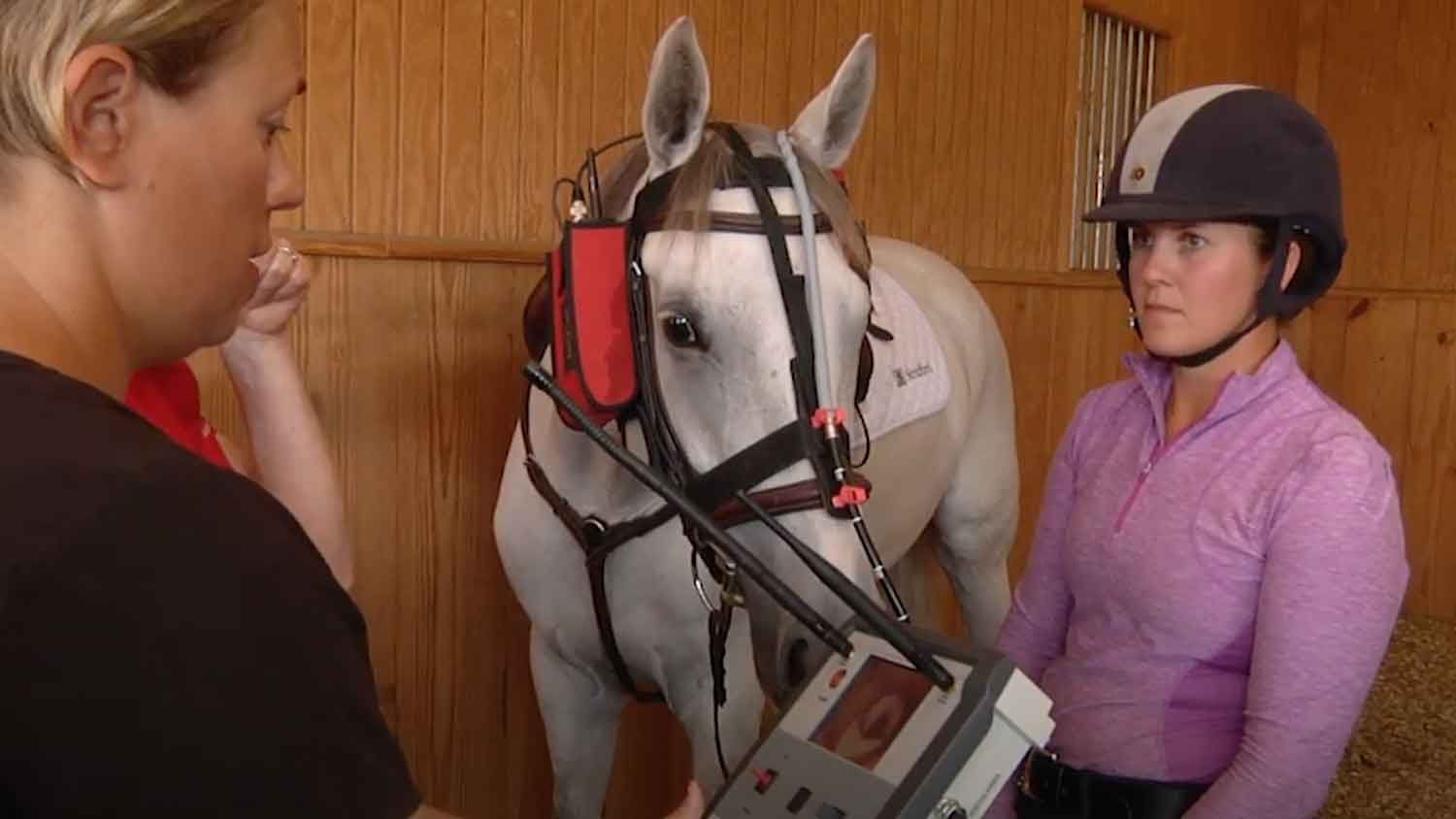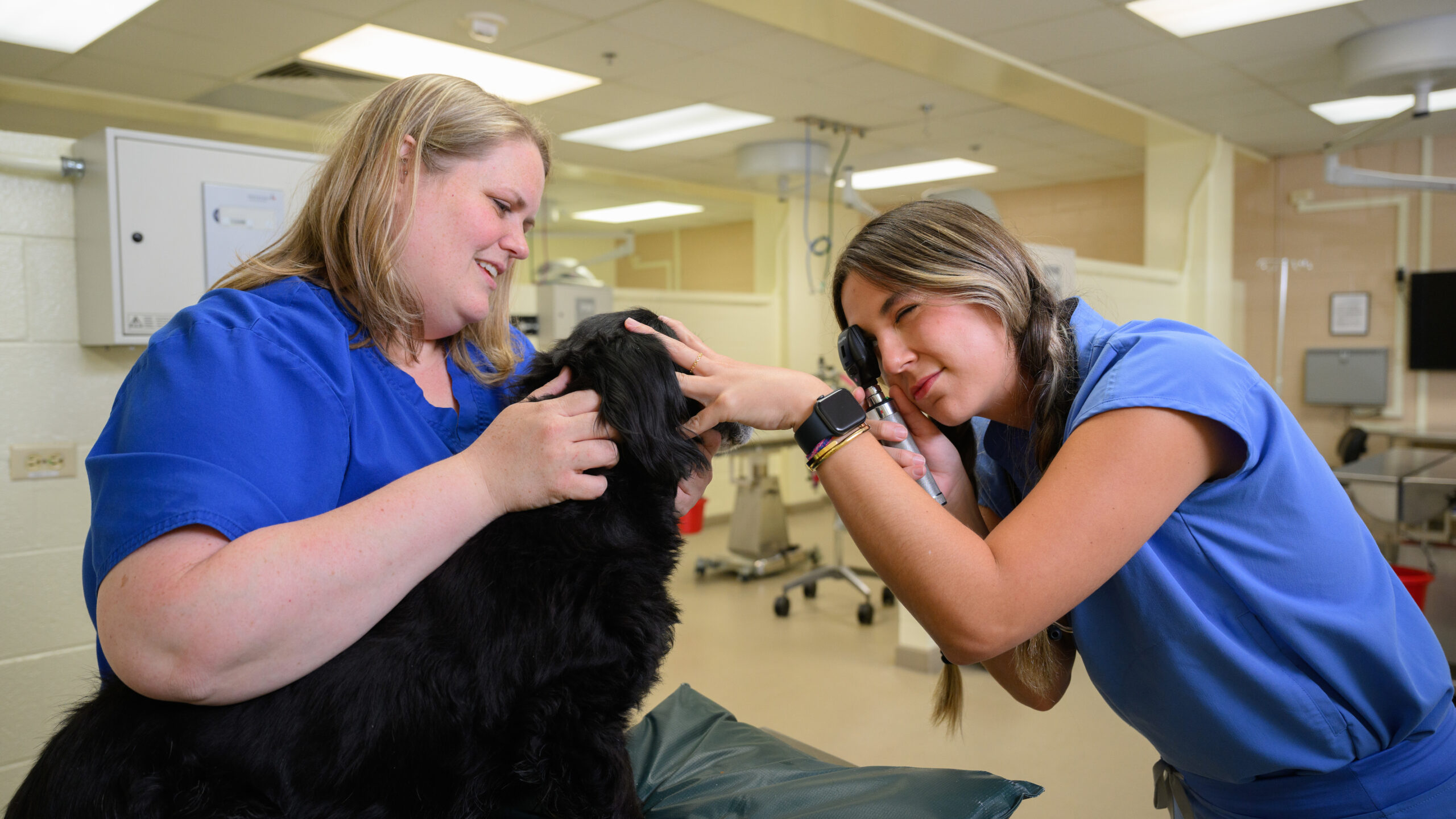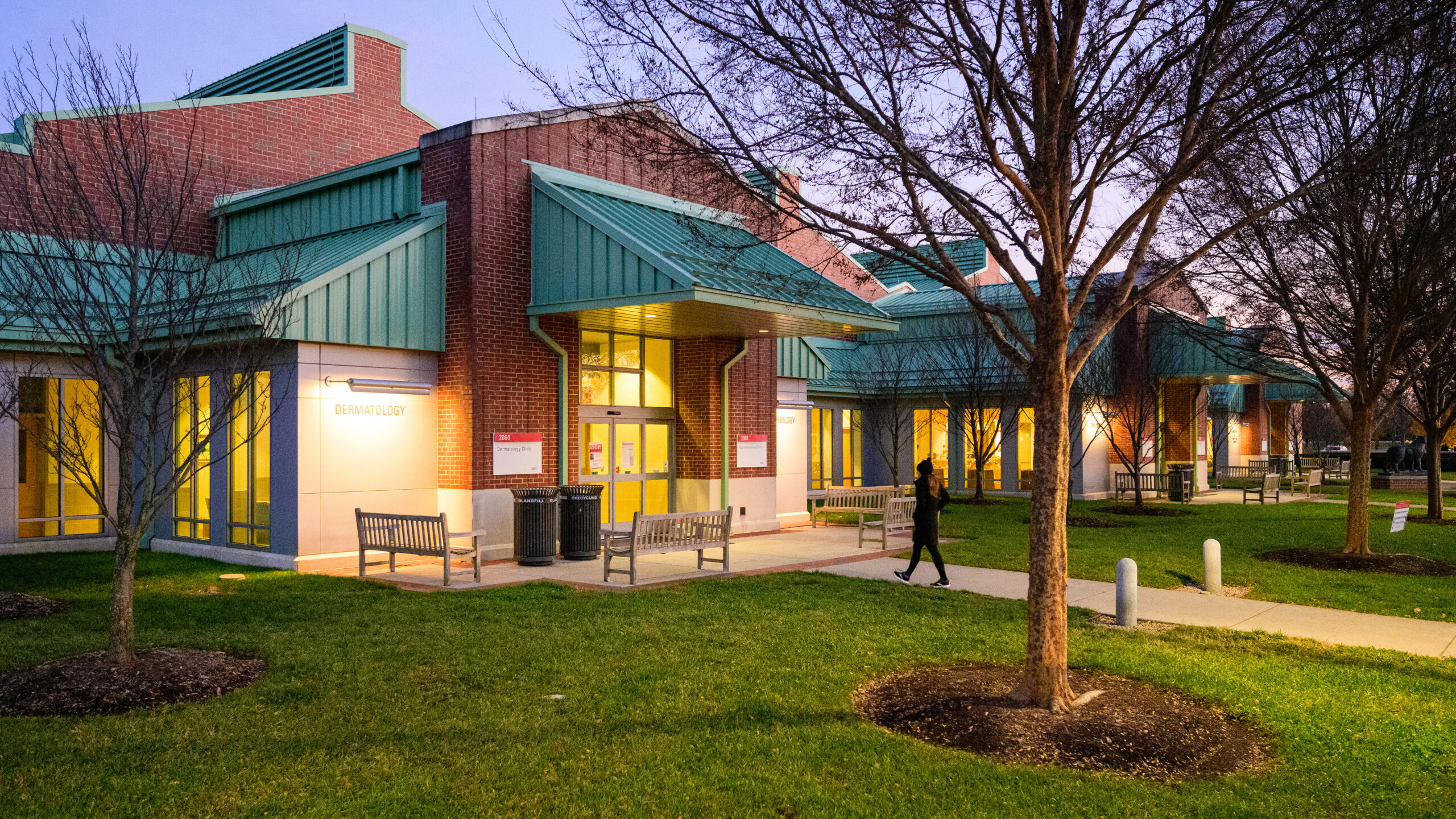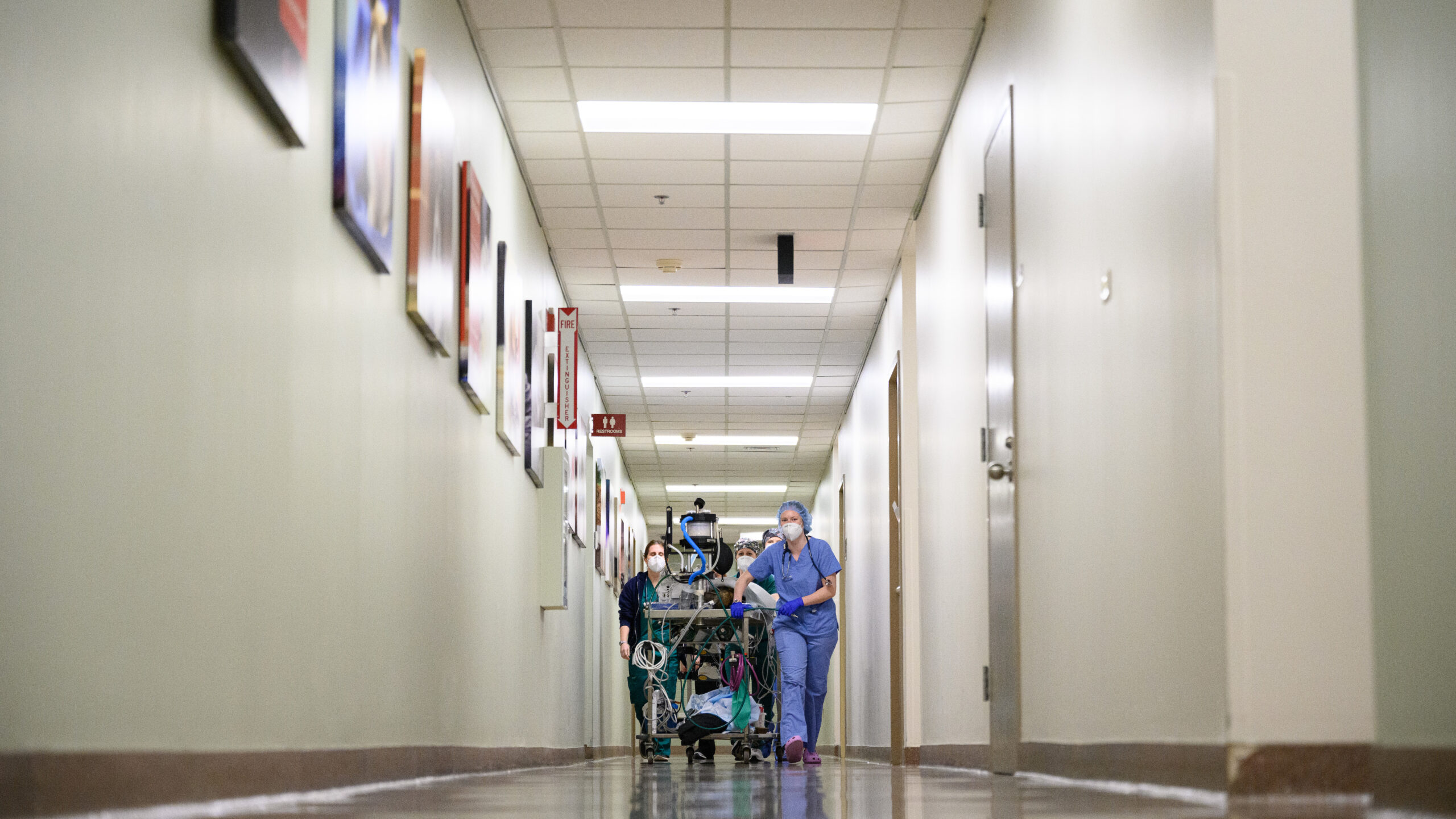Equine: Surgery
We specialize in diagnosis and treatment of horses with diseases that may require surgery as a major component of their management.
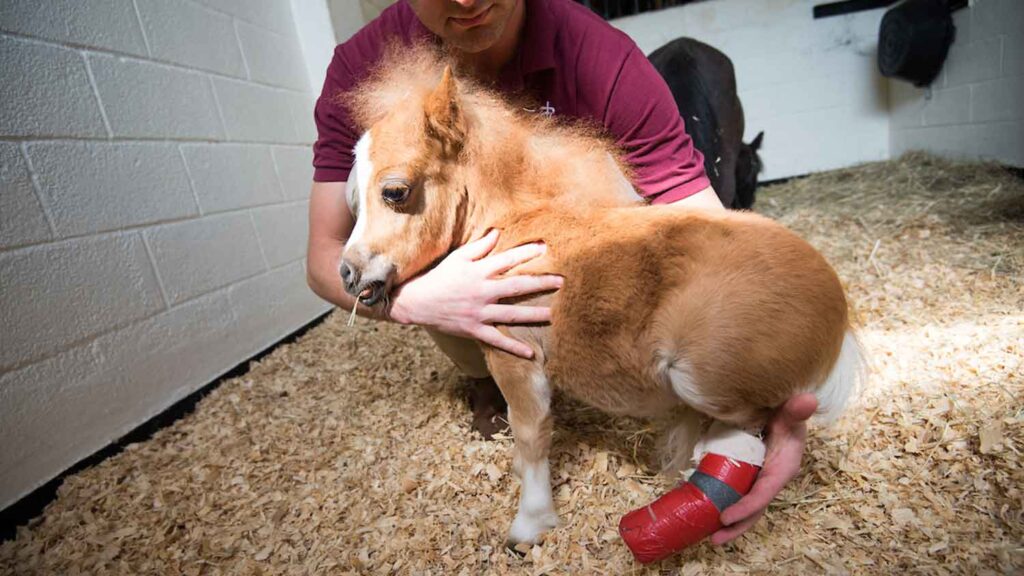
Overview
Did you know that the only surgeries routinely performed in general equine practice are minor lacerations and castrations? This is because horses are relatively difficult to anesthetize, and have a greater incidence of postoperative complications than other species. Therefore, advanced surgical expertise (with the accompanying expertise of anesthesiologists) are needed.
In addition, surgeons at the NC State Veterinary Hospital have access and expertise in a range of high tech diagnostics such as nuclear scintigraphy, ultrasonography, thermography, and arthroscopy (for lameness), laparoscopy (for workup of chronic colic) endoscopy (for throat problems), and computed tomography (for sinus problems).
Contact Us
- Hours: Monday through Friday, 8 a.m to 5 p.m
- Phone: 919-513-6630
- Email: NCStateEquineSurgery@ncsu.edu
Our Specialties
We provide treatment, diagnosis, and expertise in a wide array of surgical and lameness issues. The following are some common examples of why patients visit our service:
- Lameness– Principally orthopedic disease in performance and companion horses, including arthritis and foot problems.
- Fractures – Including small ‘chip’ fractures that may impede optimal joint function, and long-bone fractures, which are frequently devastating.
- Colic – A catch-all term for abdominal pain, which may require surgery for diagnosis and treatment.
- Respiratory disease – primarily involving throat and sinus problems of performance horses.
- Reproductive problems – such as dystocia (difficult birth), and perineal lacerations acquired during foaling.
- Lacerations (cuts), which may involve major orthopedic structures such as joints and tendon sheaths.
- Neoplasia (cancer) – which in the horse most commonly involves theskin (sarcoids, melanomas, and squamous cell carcinoma being by far the most common tumors) but may include internal organs (such as lymphosarcoma).
Appointments and Referrals
The equine orthopedic surgery service receives elective cases routinely from 9AM on Mondays and Wednesdays and other weekdays as required. The equine soft tissue surgery service receives elective cases from 9AM on Tuesdays and Thursdays and other weekdays as required. The surgery services perform elective surgeries on the days they are not receiving.
Please call between 8-5 weekdays for an estimate and appointment.
Frequently Asked Questions
How Long Will My Visit Take?
It is our goal to deliver the most complete service as efficiently as possible. The length of your visit is variable depending on your horse’s specific needs.
Give yourself plenty of time for the appointment. You are welcome to bring snacks/lunch and we have a coffee shop along with several vending machines.
What If My Horse Needs To Be Hospitalized?
Should your visit require hospitalization, your horse will be monitored 24/7 by your primary faculty clinician, residents, veterinary technician staff, and senior veterinary students.
We encourage patient visits between the hours of 11 a.m. – 12:30 p.m. and 4-6:30 p.m. Just stop by the reception desk and a receptionist will page someone to meet you and take you back to your horse’s stall. If those times aren’t convenient for you, please let us know and we will make arrangements for you.
You can expect a call once daily from your veterinary team regarding your horse’s well-being unless other arrangements are made. You will be contacted as soon as possible if a problem arises.
What Happens When My Horse Goes Home?
At the end of your appointment or when you come to pick up your horse, you will go into the Large Animal Reception Desk where you will pay your bill and receive your discharge instructions. Once you have finished there you will proceed to the breezeway where you will meet up with someone from your veterinary team and go over your discharge sheet to be sure all questions are answered and that you have any medications you need. Now it is time to load up so you may pull your trailer into the breezeway.
How Can I Share Information With My Primary Veterinarian?
We also understand that the care of your horse involves many people. If you have not been directly referred by a primary care veterinarian, please let us know if there is a veterinarian we need to provide information to regarding the treatment of your horse.
Resources
- Equine Bone Scan
- Equine Distal Limb Bandage at Home Guide
- American College of Veterinary Internal Medicine
- American Association of Equine Practitioners. This site has an excellent owner education section.
- American Board of Veterinary Practitioners
Additional resources may also be found at the NC State College of Veterinary Medicine’s website.
